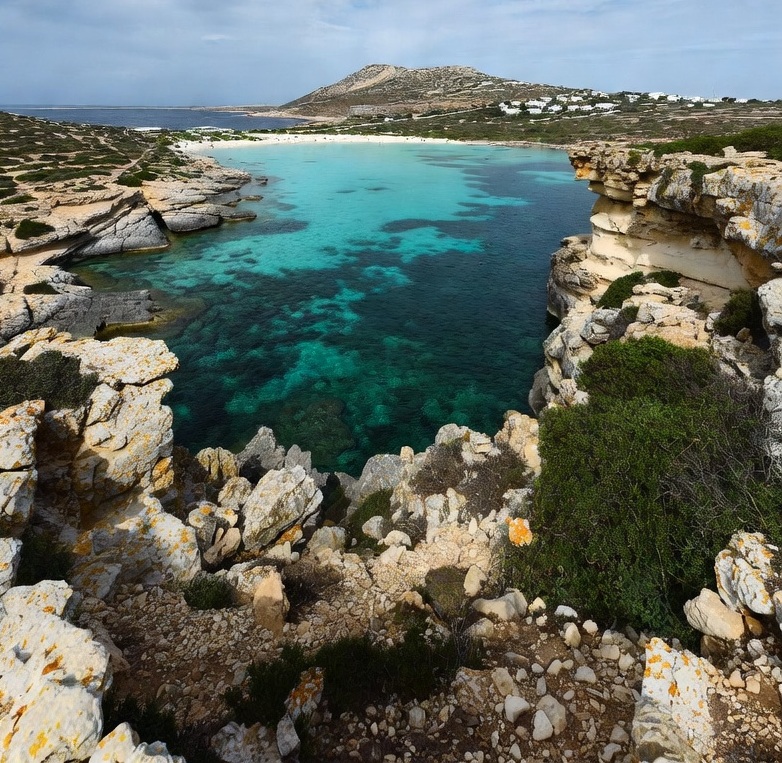A Tax Haven in the Heart of Europe
Maltese Tax Residency in 2026 | Maltese Partnership Structures in 2026 | Maltese Corporate Income Taxation in 2026 | Private foundations
There’s something almost perverse about how nineteenth-century colonial law became the foundation of twenty-first-century tax strategy. The concept of “resident non-domiciled”—a legal relic from the British Empire, originally designed for lords and merchants who lived in the colonies but considered England their true home—has evolved into one of the most sophisticated tools in international tax planning.
When Prime Minister William Pitt the Younger introduced Britain’s first income tax in 1799 to finance the Napoleonic Wars, he could not have foreseen he was creating a system that would endure for over two centuries. Taxation on a remittance basis—levying tax only on income actually brought into the country—was then a pragmatic solution: revenues from colonial sugar and tobacco plantations had to be transported to Great Britain under the Navigation Acts anyway, so that’s where they were sold and where taxable income arose. This system, initially available to all British residents, was restricted in 1914 to persons without British domicile—not through accident or loophole, but by Parliament’s deliberate decision.
Malta, Cyprus, Ireland, Hong Kong, Singapore, Mauritius: all inherited this framework as part of their British legal legacy. And then someone noticed the gap.
The Maltese tax residency scheme, particularly in its resident-non-domiciled form, offers an extraordinarily attractive proposition for those earning from international sources: you’re taxed only on what you physically bring onto the island.
The mechanism is elegantly simple. Malta taxes local income—everything you earn on Maltese soil, in whatever form. Foreign income? That’s taxable only when you “remit” it to Malta. As long as it remains abroad, Malta makes no claim on it whatsoever.
In practice, this creates something remarkable. If you’re earning in London, New York, or Berlin, and you keep those funds in Swiss, Luxembourg, or Cypriot accounts, you pay no Maltese tax. Zero. Whether you’re earning fifty thousand euros annually or five million.
There’s just one condition, which many taxpayers disregard at their peril: you must actually relocate your life to Malta. A Maltese residency certificate won’t protect you if your center of vital interests remains elsewhere—in Warsaw, Berlin, or Paris. Poland, Germany, and France look at where you actually live, and if the answer is “here,” no Maltese documentation will shield you from taxation.
The Architecture of Advantage
The global tax world divides into two camps. The first group—mainly those descended from British common law—applies the principle of domicile. They ask: Where is your true, permanent home? Where were you born? Where do you belong in a deep, legal sense? If the answer is “somewhere else,” they treat you as someone temporary, transitory. You might live among them for ten, twenty years, but if your domicile lies elsewhere, they won’t tax your foreign income. Or they will, but only what you bring into their country. The remittance basis.
The second group—most of continental Europe, including Poland—doesn’t understand or recognize the concept of domicile. For them, what matters is your center of vital interests: where you actually live, where your family resides, where you conduct business, where your social and economic ties lie. Transfer that center elsewhere, and you cease to be their tax resident. End of taxation.
And here emerges the magical gap.
Imagine a Pole who moves to Malta. He rents an apartment, spends more than a hundred and eighty-three days there annually, becomes a Maltese tax resident. He receives a tax residency certificate from Maltese authorities—an official document confirming his Maltese residency.
But Malta examines his domicile. Polish. It was never changed, because changing domicile requires a total break with your country of origin and the intention to remain in the new country forever. Most people don’t do this. So Malta says: “You’re our tax resident, but your domicile isn’t Maltese, so we’ll tax only your Maltese income and foreign income remitted to Malta. The rest is outside our jurisdiction, because your real home is elsewhere.”
Now this same person looks back at Poland. He’s moved to Malta, lives there more than half the year, has an apartment there, pays bills there, conducts his daily life there. Poland examines his center of vital interests and says: “You’re no longer a Polish tax resident. Your life center is in Malta. You have a Maltese residency certificate. We’re no longer the proper country to tax your income.”
And suddenly this person finds himself in a situation where Malta says “we won’t tax your foreign income because your domicile isn’t Maltese,” while Poland says “we won’t tax your income because you’re a Maltese resident.” If he earns from foreign sources—consulting for German clients, portfolio management for Americans, dividends from British stocks—and doesn’t transfer those funds to Malta, he effectively pays only the Maltese minimum of five thousand euros annually. Whether he earns fifty thousand, five hundred thousand, or five million.
This is the simple result of two legal systems measuring tax residency by different standards. One looks at domicile, the other at center of vital interests. And when you position yourself correctly, you can find yourself between them in a legal zone of zero taxation.
Hundreds of thousands of people worldwide function this way—not only in Malta but in many other countries employing the resident-non-domiciled formula. Managers, consultants, freelancers, investors, business owners. They move from Poland to Malta, from Germany to Cyprus, from Italy to London (where until very recently this was possible). They obtain a residency certificate in the new location, lose residency in the old, and suddenly their effective tax rate drops from forty or fifty per cent to zero or nearly zero.
Of course, this requires an actual move. You can’t simply purchase a residency certificate and pretend. The Polish tax office will verify where you actually live. If you’re living in Warsaw with only a formal Maltese address, the certificate won’t help. You’ll be a Polish resident under the center-of-vital-interests principle and pay Polish tax on worldwide income.
But if you actually relocate, actually transfer your life center, actually spend most of the year in your new location—then this solution works. Poland loses the right to tax you because you cease to be a Polish resident under Polish rules. Malta won’t tax foreign income not brought in because your domicile isn’t Maltese under Maltese rules.
Archaic British colonial law from the nineteenth century, never updated in many jurisdictions, became the foundation of one of the most powerful tools in twenty-first-century international tax planning.
And Malta is where this solution works best in all of Europe.
For Whom This Makes Sense
Malta as a non-domiciled residence makes sense for a very specific group of people.
It makes sense for someone who earns significant income from foreign sources—consulting, portfolio management, licenses, royalties, dividends from foreign companies—and can keep them abroad. Someone who understands the difference between active trading and capital gains and can structure their finances to maximize the latter. Someone who has already accumulated wealth in capital assets and wants to realize them tax-free.
It makes sense for someone who actually enjoys life on a small Mediterranean island. Malta has three hundred square kilometers of surface area—less than half of Warsaw. Half a million inhabitants. It’s a small community where everyone knows everyone. For some people, this is the charm—intimate atmosphere, sense of security, an English-speaking environment in the heart of Europe, easy access to Sicily, Italy, all of southern Europe. For others, it’s claustrophobia—lack of space, lack of anonymity, life on an island you can’t drive away from.
It makes sense for someone who has no problem with hot summers. For someone who doesn’t miss four seasons, snow, forests, mountains.
Maltese residency doesn’t make sense for someone earning primarily in Poland or locally in Malta—because local income is taxed normally in Malta; no non-dom benefits apply there. It doesn’t make sense for someone with modest foreign income below thirty-five thousand euros—because then there’s neither minimum tax nor significant savings. It doesn’t make sense for someone who needs space, diversity, a big city, a continent, not an island.
And most importantly: it doesn’t make sense as a paper construction. It requires actually transferring your center of vital interests. If you actually live in Poland with only formal Maltese residency—the Polish tax office won’t accept this. Malta may also challenge it if you don’t spend the required time there.
Malta is actual emigration, not an optimization scheme. But for the right people—international professionals, investors, entrepreneurs with global businesses—it’s one of the best tax options in Europe in 2025.
The Realities
Minimum tax obligation: five thousand euros
Malta imposes a minimum tax for non-domiciled residents under ordinary residence. If your foreign income exceeds thirty-five thousand euros annually, you must pay a minimum of five thousand euros in Maltese tax.
This isn’t a lump-sum tax on everything. It’s a minimum. If you transfer your foreign income to Malta, you pay more. But if you don’t transfer it, or transfer little, and your foreign income exceeds the thirty-five-thousand-euro threshold, you must pay at least five thousand.
For someone earning hundreds of thousands or millions of euros annually, five thousand is a marginal cost. For someone with moderate income, this might be a significant percentage. You need to calculate whether the strategy makes economic sense.
No inheritance, wealth, or gift taxes
Malta imposes no inheritance tax, wealth tax, or gift tax between family members. This is a fundamental difference from most European countries.
An heir inherits the entire estate tax-free. The only exception is a five-per-cent duty on transfers of Maltese real estate. But movables, stocks, bonds, cryptocurrencies, foreign real estate—everything passes to heirs without tax.
Combined with the absence of tax on foreign capital gains, Malta becomes one of the best jurisdictions in Europe for wealth accumulation and intergenerational transfer.
It’s worth noting, however, that Maltese tax residency may also impose Malta’s inheritance system, which isn’t inherently bad but operates completely differently from Poland’s—as I discuss in my article on compulsory shares in global legal systems.
A Necessary Caveat
Between theory and practice lies an ocean of details. The structure described above presents the resident-non-domiciled system in its purest, most advantageous form. The reality of implementation is far more complex and full of tax reefs that can sink an incautious strategy. The source rule, qualification of professional services provided remotely from Malta, the management-and-control doctrine for foreign corporate structures, Revenue Commissioner interpretations regarding actual work location, economic-substance requirements for foreign entities, permanent-establishment risks—all require precise legal analysis and often demand sophisticated corporate structures extending far beyond individual non-dom status.
But there’s an even more fundamental problem touching the very essence of the described strategy: Can you change your center of vital interests without changing domicile?
The described gap between systems rests on the assumption that you can simultaneously transfer your center of vital interests to Malta (to stop being a tax resident in your country of origin) while maintaining domicile in your country of origin (to benefit from Maltese remittance-basis taxation as non-domiciled).
The problem is that both concepts—though from different legal systems—largely measure something similar: the intensity of a person’s connection to a country.
Consider the Italian Cassazione ruling n. 21695/2020, which demonstrated how resident-non-domiciled status can be used against a taxpayer. A singer moved to the United Kingdom and obtained UK-resident-non-domiciled status, which—per the British remittance-basis principle—meant taxation only on local and remitted income, leaving foreign income outside UK taxation. The Italian tax authority used this fact to argue that the taxpayer hadn’t genuinely transferred tax residency but created an avoidance construction: since the UK didn’t actually tax his main income from artistic activities (performed mainly in Italy and other EU countries), one couldn’t speak of a genuine shift in the center of taxation. The Cassazione explicitly stated that this status “means that taxation includes only locally produced income,” considering this proof of lack of actual residency transfer.
The court also rejected the taxpayer’s argument based on Article 4 of the Italy-UK Convention (tie-breaker), finding that since the taxpayer wasn’t genuinely taxed in the UK as a resident (only as non-domiciled with limited tax base), he didn’t meet the definition of “resident” under Article 4(1) of the Convention, which requires being “subject to tax in that State.”
Swiss courts (case 2C_835/2017) and German courts (case IX R 37/21) have ruled similarly, relying on OECD Model Convention commentary and its interpretation.
This text is educational in nature and presents the system’s concept, not implementation instructions. Every actual relocation requires professional advice considering specific circumstances—type of activity, client structure, asset location, existing corporate obligations. Malta also offers alternative paths, such as the Nomad Residence Permit with a ten-per-cent flat tax on remote work, which may be more appropriate for certain professional profiles.
The devil dwells in details, and those details require individual analysis.
Contact
Don’t guess—work with specifics. We’ll analyze your financial situation, income sources, and lifestyle to objectively assess whether Malta is the right solution for you. Schedule a preliminary consultation.



